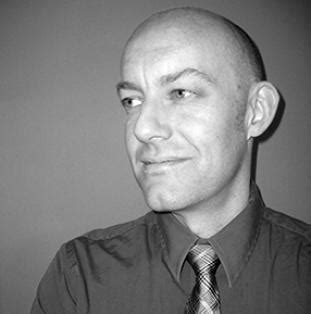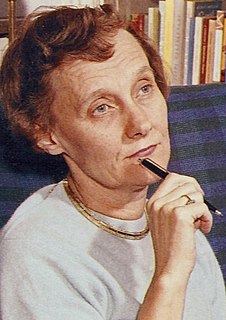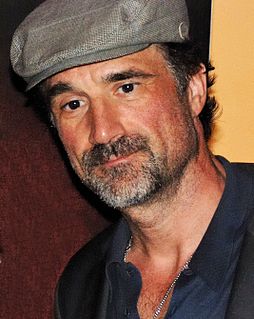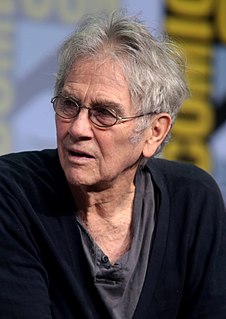A Quote by Ai Weiwei
Somehow, we [ Tan Dun and director Chen Kaige] were all privileged at the time; we could be outside of China. But at the moment, we had no sense of what the future was going to be like.
Related Quotes
Me and my wife had somehow finally reached a moment in which our lives made sense, in which we were comfortable in certain material ways, and in that very moment we were faced with a medical situation that could only really be resolved with death or time. Suddenly we had become these people who didn't drink anything but kale, who ended many of our conversations with tears, and for whom no future was guaranteed. It was kind of funny.
We human beings have enormous difficulty in focusing on the present; we always thinking about what we did, about how we could have done it better.... or else we think about the future, about what we're going to do.... But at this precise moment, you also realize that you can change your future by bringing the past into the present. Past and future only exist in our mind. The present moment, though, is outside of time, it's Eternity.... It isn't what you did in the past the will affect the present. It's what you do in the present that will redeem the past and thereby change the future.
At least, not in this country,' she added after a moment's thought. 'In China it's a little different. Once I saw a Chinaman in Shanghai. His ears were so big he could use them for a raincoat. When it rained, he just crept in under his ears and was warm and snug as could be. Not that the ears had such a rattling good time of it, you understand. If it was specially bad weather, he'd invite friends and acquaintances to pitch camp under his ears too. There they sat, singing their sorrowful songs while it poured down outside.
What I was talking about was, of course, very autobiographical - '68 was the moment when all the young people were incredibly excited, because when we were going to sleep, we knew we would wake up not tomorrow, but in the future. There was a sense of future that was the result of the mixture of politics, cinema, music, the first joints. And the movies were a very important part of that cocktail.
I tried to write things, but they were so ridiculous and stupid and impossible and I had not a clue what they were, so that delusion went on for a long time. Maybe it's still going on, only somehow I sucked some people in. It was a long time of writing things that didn't make sense in the real world, and I'm embarrassed about them now in a jocular way.
We are somehow the children of the planet, we are somehow its finest hour; we bind time, we bind the past, we anticipate the future - we are going hyper-spatial; we are claiming a whole new dimension for biology that it never claimed before. We are actually becoming a fourth-dimensional kind of creature. Our future is somehow with us, as we seem to be able to move through metamorphosis into our own imaginations - a super civilization spread throughout space and time. Our future is a mystery, our destiny is to live in the imagination.
I think that what I learned then, I didn't know I was learning. I just knew that I was very privileged to see somebody who was a writer, a great poet, and very smart-faced. Suddenly Pasolini becomes a director, so he has to invent cinema. It was like watching the invention of cinema. But I found out that Pasolini taught me a lot. It was, especially, the kind of respect that he had for reality. He had kind of epiphanies in his movies, like when a moment becomes full of grace, and it is like as if it was the most important moment in the life of a character.
I think that we had a different view of what the 21st century could be like, with much more of a sense, from our perspective, of trying to have an interdependent world: looking at solving regional conflicts, having strength in alliances, operating within some kind of a sense that we were part of the international community and not outside of it.
My father left me with the feeling that I had to live for two people, and that if I did it well enough, somehow I could make up for the life he should have had. And his memory infused me, at a younger age than most, with a sense of my own mortality. The knowledge that I, too, could die young drove me both to try to drain the most out of every moment of life and to get on with the next big challenge. Even when I wasn't sure where I was going, I was always in a hurry.
But the indeterminate future is somehow one in which probability and statistics are the dominant modality for making sense of the world. Bell curves and random walks define what the future is going to look like. The standard pedagogical argument is that high schools should get rid of calculus and replace it with statistics, which is really important and actually useful. There has been a powerful shift toward the idea that statistical ways of thinking are going to drive the future.
...the long train ride was like traveling through limbo. You weren't anywhere when you were on a train, she decided. You weren't where you had been, and you weren't yet where you were going. You were nowhere. It might be beautiful outside the window-and it was, she had sense enough to realize that-but it wasn't anywhere to her, just a scene passing by that was framed by the train window. (p160)






































